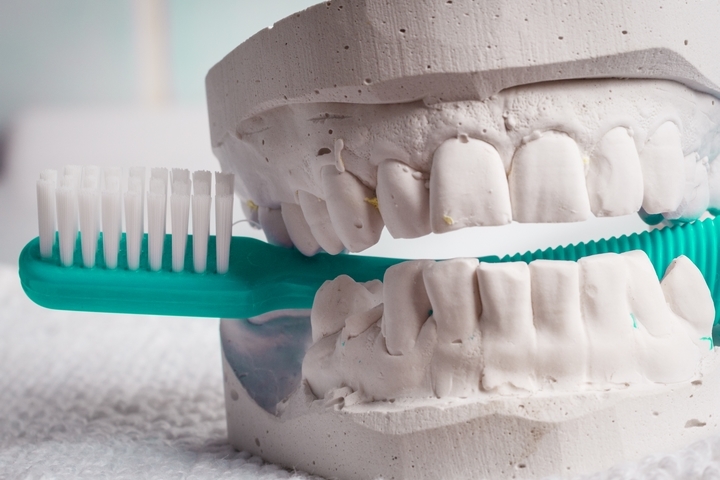Enamel is the hard semi-transparent outer cover of a tooth. It’s made up of minerals such as phosphate, sodium, fluoride, magnesium, and calcium, alongside slight components of the denting and bones. The enamel protects the tooth from decay and sensitivity, among other dental issues.
It’s common for the enamel to undergo wear and tear as the years progress. Simultaneously, there are several measures one can take to strengthen their teeth enamels against significant wear and tear. There are various strategies to protect your enamel from abnormal wear and tear. One of the best methods is by visiting a family dentistry Mississauga regularly. The dentist will ensure your teeth are in good condition and pinpoint any problems as soon as they arise.
Here is a guide on how to strengthen tooth enamel:
1. Go for Non-Acidic Foods

Some foods are significantly unhealthy for tooth enamel due to their acidic composition. Examples of such foods include citrus fruits like limes, lemons, grapes, and oranges. For your tooth enamel to last longer and stronger, you should focus on non-acidic foods such as vegetables, foods or drinks with fluoride components, and dairy products.
2. Make Water Your Best Friend

Experts have advised that adults consume at least eight glasses of water daily. Water consumption has been associated with plenty of benefits to one’s body health, tooth enamel included. The colourless magician rinses excess saliva, food particles, and bacteria from one’s teeth, making the enamel safer. You can never go wrong with drinking water for your enamels.
3. Twice-a-day Tooth Brushing

Brushing twice a day is probably the most ignored routine by many people. Understandably, everyone is busy with work and other issues, but you should spend at least two minutes twice a day brushing your teeth.
Brushing clears bacteria on the enamel, which could otherwise cause teeth to weaken and discolour. Flossing and using mouthwash are also good for strengthening the enamel.
4. Do Not Over-Brush or Use Foreign Substances to Brush

Brushing too much or for long hours doesn’t necessarily mean your teeth will be sparkling milky white instantly but instead weakens the tooth enamel and damages one’s gums. Brushing more than three times a day or 3 minutes and above can be considered over-brushing.
Additionally, you shouldn’t use too much force when brushing as it may ruin your enamel. Suppose you’re a fan of social media platforms. In that case, you must have encountered a few ads illustrating how ginger, baking soda, salt, lemon, natural soap, and other herbal powders can be used to brighten the enamel.
Although slightly effective, dentists have associated the substances with enamel destruction if used continuously and in large quantities. It may be safer to stick to the standard fluoride toothpaste as recommended by experienced dentists.
5. Make Regular Visits to the Dentist

You don’t have to wait until you’re experiencing a toothache to rush to the dentist. Regular dental visits are good for tracking the wellness of your enamel and staying cautious about the signs and symptoms of unhealthy enamel.
You can tell that your teeth enamels are in bad condition if you notice a persistent yellow colour, roughness or a foreign texture, and sensitivity. Even when your enamel is in a good state, you should visit the dentist at least twice or thrice a year. The dentist will recommend other enamel protective measures you might not have known.
6. Say No to Sugary Foods

Everyone must at least be familiar with what sugary foods do to teeth, whether from direct or indirect experiences. Sugary foods such as chocolates and candies are significantly connected to tooth decay, weakening, and other health issues.
The sugar combines with bacteria and saliva in the mouth, creating plaque on the enamel, and it could be more complex if not managed at its early stages.
7. Say Yes to Calcium-Filled Foods

Calcium has been and remains the main god of the wellness of enamels and teeth. The more calcium one takes, the stronger and more resistant their enamel becomes to cavities, erosion, and other dental issues.
Calcium-filled foods include dairy products, leafy green vegetables, soybeans, figs, seeds (chia and sesame seeds), beans, wheat products, and almonds. Dentists have also recommended foods rich in vitamin D for healthy and stronger teeth.
8. Keep Your Mouth Hydrated

Did you know that a dry mouth significantly contributes to wear and tear on the enamels? The dry mouth condition (Xerostomia) happens when there’s inadequate saliva production. Saliva keeps the mouth hydrated and fills it with calcium and phosphate minerals.
Other causes of a dehydrated mouth include side effects of certain medications, low intake of fluids, the habit of sleeping with the mouth open, and effects of extremely hot weather. You can manage Xerostomia by drinking enough healthy fluids such as water, milk, fresh fruits blended into juice, and yogurt.
9. Avoid Highly Chlorinated Pools

Chlorination in swimming pools reduces the dangers of waterborne diseases and skin and ear infections on the swimmers. However, if done excessively, chlorinated pools can have acidic effects on the swimmers’ teeth, especially the enamel.
Ensure the chlorine levels in your swimming spot are moderate before diving in. Simultaneously, swimming with your mouth closed instead of the opposite would be best.
